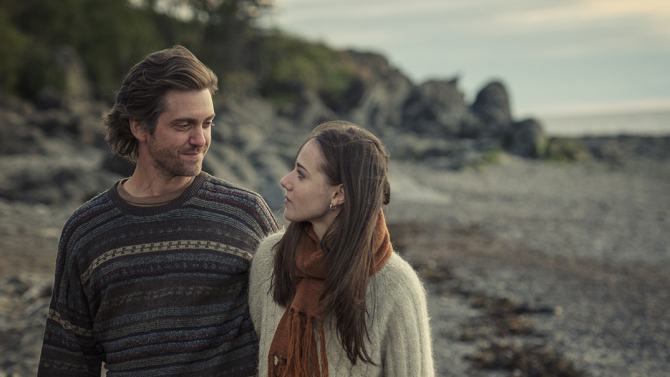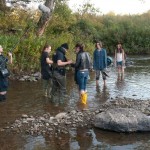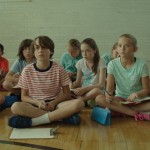By Asha New
Directed by Anne Émond
Toronto International Film Festival review
Our Loved Ones is a film that focuses on people, and the interactions between them, as they attempt to overcome the normal obstacles of everyday life. It follows three generations of a Canadian family, most notably the young and charismatic David as he deals with the recent death of his father. With the formation of his own family, we see how this incident affects him over the course of his life, and how he affects the rest of his family. As David grows older, the camera transitions to shift focus onto his daughter, Laurence, such that we’re following her story by the end of the film.
The majority of the feature focuses on David. He is presented as the father of the family, the head of the business, the responsible sibling. He has a lovely partner and children, a big house and relative wealth, and you can’t initially imagine him being negatively affected by any surrounding circumstances. However, despite this presentation of him as a reliable character, his siblings hide from him the fact that his father committed suicide. It is only on Christmas, many years later that he learns the truth and, when asking his sister why he was never told, she replies, ‘you’re sensitive, David’. This moment provokes us to see more of David than has been obvious before. And when he lies down in the middle of the forest staring at the sky in a moment away from his family and talks to a rabbit, telling it to run before he shoots it – or when he admits to his family, ‘you guys save me’ – such instances provide further depth to David, and lead the audience to suspect that he may be very different from the surface appeal of a simple, well-off, good, fatherly man.

Laurence is the oldest daughter of David and Marie and, as the film continues, the perspective shifts to place more emphasis on her situation as she transitions through teenage life and into college. The audience witnesses the breakdown of her childhood friend, Antoine, and how it affects Laurence, even into later life. The scene where she presents her poem in college is a truly affecting moment that reveals Laurence’s talent as a writer. It serves to provide a way for the audience to envisage her future whilst also reflecting back on her past, and the time spent with Antoine.
The film does occasionally drop into cliché moments. Take, for instance, when Laurence exhibits the typical teenage anger at her father reading her notebook, which could have been handled in a much more emotional and meaningful way. There’s also little originality to how Laurence and David reconcile after Antoine’s incident. Although it is memorable, with the scenery and the emotion from the last scene still lingering, it doesn’t utilise the moment to its full potential. For the most part, the film has a wonderfully original bittersweet atmosphere to it but occasionally it will dip down into the roll-the-eyes slice of life moments that take something away from the clear heart-breaking normality that the picture excels at.
Anne Émond’s feature explores the depth of its characters and the interactions between them as a family. Therefore, although the setting and music are beautiful and evocative at times, they are somewhat overshadowed by the major character focus. What makes it so engaging, however, is that it is so normal and truthful; it combines all these spellbinding everyday family moments with a strong concentration on character that is emotional and bittersweet. Our Loved Ones excels at presenting such moments and situations with meaning and emotion, allowing the audience to feel as equally affected by what is happening as the on-screen characters.
Recommended Viewing on FilmDoo:
(UK & Ireland only)









